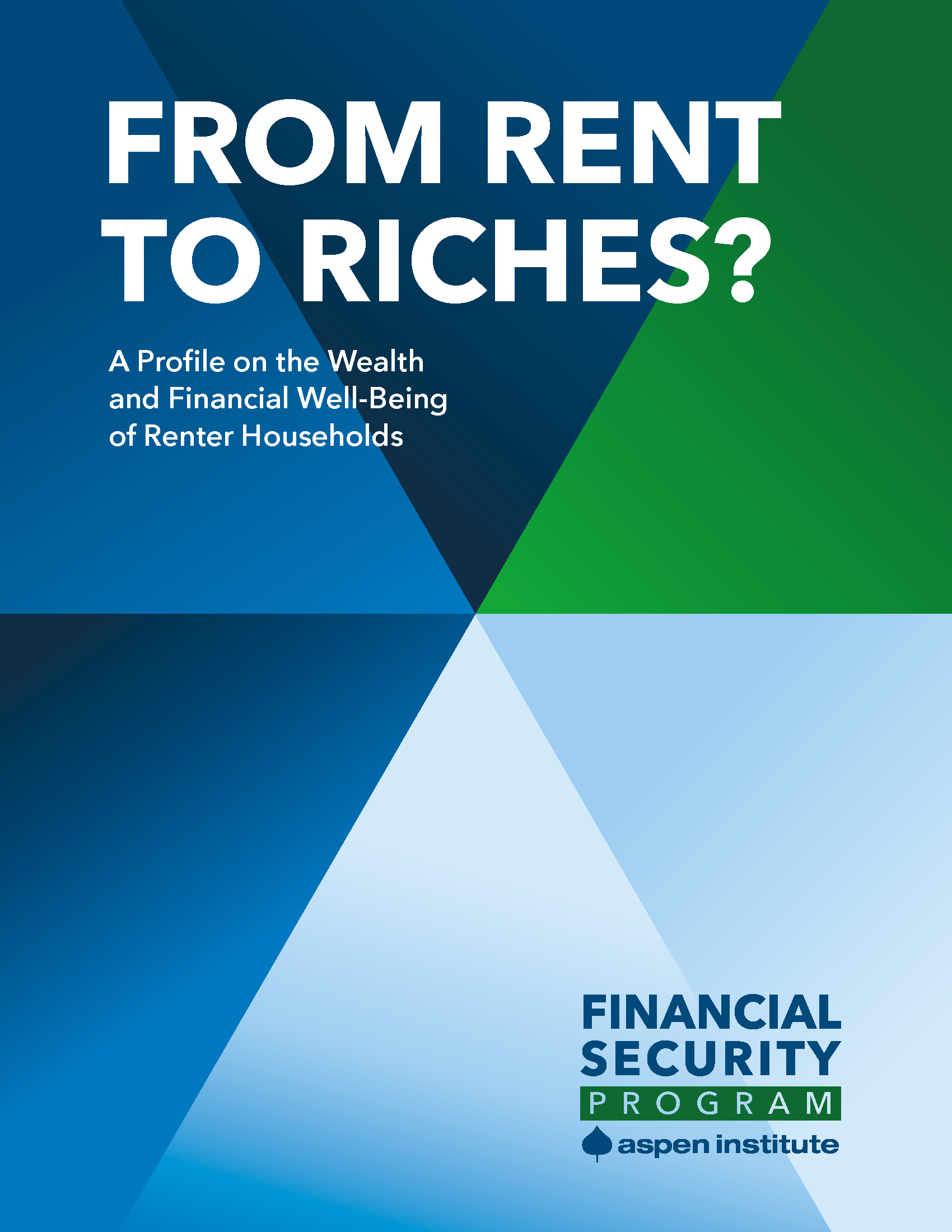Nonprofit Leaders in Financial Technology (nLIFT) is a group of organizations with a shared goal of increasing financial inclusion through technology-driven platforms. The organizations are working with the Institute’s FIELD and Financial Security Program to learn from and with each other, and to communicate the unique role that nonprofits have in developing financial technology that expands access to good financial products. Leaders of several nLIFT member organizations recently attended the Aspen Institute Summit on Inequality & Opportunity. Below, Timothy Flacke, executive director of Commonwealth, shares how his work is expanding opportunity and addressing inequality.
What aspects of inequality are you working on?
Commonwealth envisions a world where the financial system promotes lasting social and economic prosperity for everyone, where everyone has basic financial security and an opportunity to realize their human potential.
This is an ambitious, long-term undertaking – we must begin with manageable goals. One of our focuses is helping vulnerable households manage uncertainty. The Federal Reserve reports that nearly half of us aren’t able to handle a $400 emergency. If we can equip many more households to be prepared for inevitable financial ups and downs, we can help millions of Americans bring stability to their lives. And with that stability, these people will be better able to seize economic opportunity and, ultimately, to alter the pattern of inequality.
Emergency savings features Commonwealth has pioneered – like the rainy day reserve and Walmart’s prize savings – have seen exceptionally strong use and yielded documented benefits for households, like less-costly short-term borrowing, and less need to borrow from friends and families.
Why are financial inclusion and access to financial services and information critical elements of opportunity?
Money and the tools to manage it are essential for basic survival, much less mobility and opportunity. Too often our financial status is also a marker of our self-worth, a referendum on our past decisions, and harbinger of our future. With stakes so high, it’s critical everyone has access to high-quality, cost-effective tools and services.
Stories like that of Ebony Brown illustrate what can happen when people have the right tools. In her telling, Ebony grew up in a community where children supported adults, rather than the other way around. But she seized every opportunity she could: opening a matched savings account, buying US Savings Bonds for her kids, and investing in a Roth IRA. She used tax season as a time to build savings, pay down debt and make steady progress toward her financial goals. In 2016, her hard work yielded an extra reward: she won the $25,000 grand prize in Commonwealth’s national tax-time savings promotion, Save Your Refund.
What happens when people don’t have access to good financial services and information?
Most people make the best financial choices they can, given the landscape in which they operate. This is especially true for people with limited incomes, who are often savvy, creative money managers, highly practiced at finding strategies to keep all the proverbial balls in the air. But too often the financial-services landscape around vulnerable people is barren, or filled with landmines. Poor options rule out good choices.
What issues of financial access are you trying to solve through your organization’s work?
To achieve lasting change to the financial system, or to reduce inequality, we believe solutions must both shift systems – policies that benefit consumers, and financial tools that serve customers’ needs – and cultivate the agency of individuals to act within those systems. We’ve focused on the second part of this equation by emphasizing consumer engagement, designing solutions that are inherently attractive and appealing to target users. If people choose to use a tool because they want to, we believe that tool will be immeasurably more useful and effective.
What makes you hopeful in your work?
More and more people seem to recognize that inequality and lack of financial opportunity serve no one, and that we have a shared interest in unlocking more human potential. While opinions obviously vary widely about how to address this reality, a shared sense of the problem is an important step – and the foundation on which a political force with enough potency to pursue structural changes to the economy and financial system can be built.
At the same time, we are continuously humbled by the people we exist to serve and benefit. People like Ebony Brown illustrate, yet again, that resourcefulness, perseverance, and integrity exist throughout our country and across socio-economic lines. If we can get the systems and structures right, people are ready to take action to build financial security for themselves and their families.
What could be more rewarding and gratifying than to see tens of millions of Americans become more financially secure, stronger, more productive, and more engaged in their futures?
Timothy Flacke is the executive director of Commonwealth, a mission-driven organization that builds solutions to make people financially secure.


